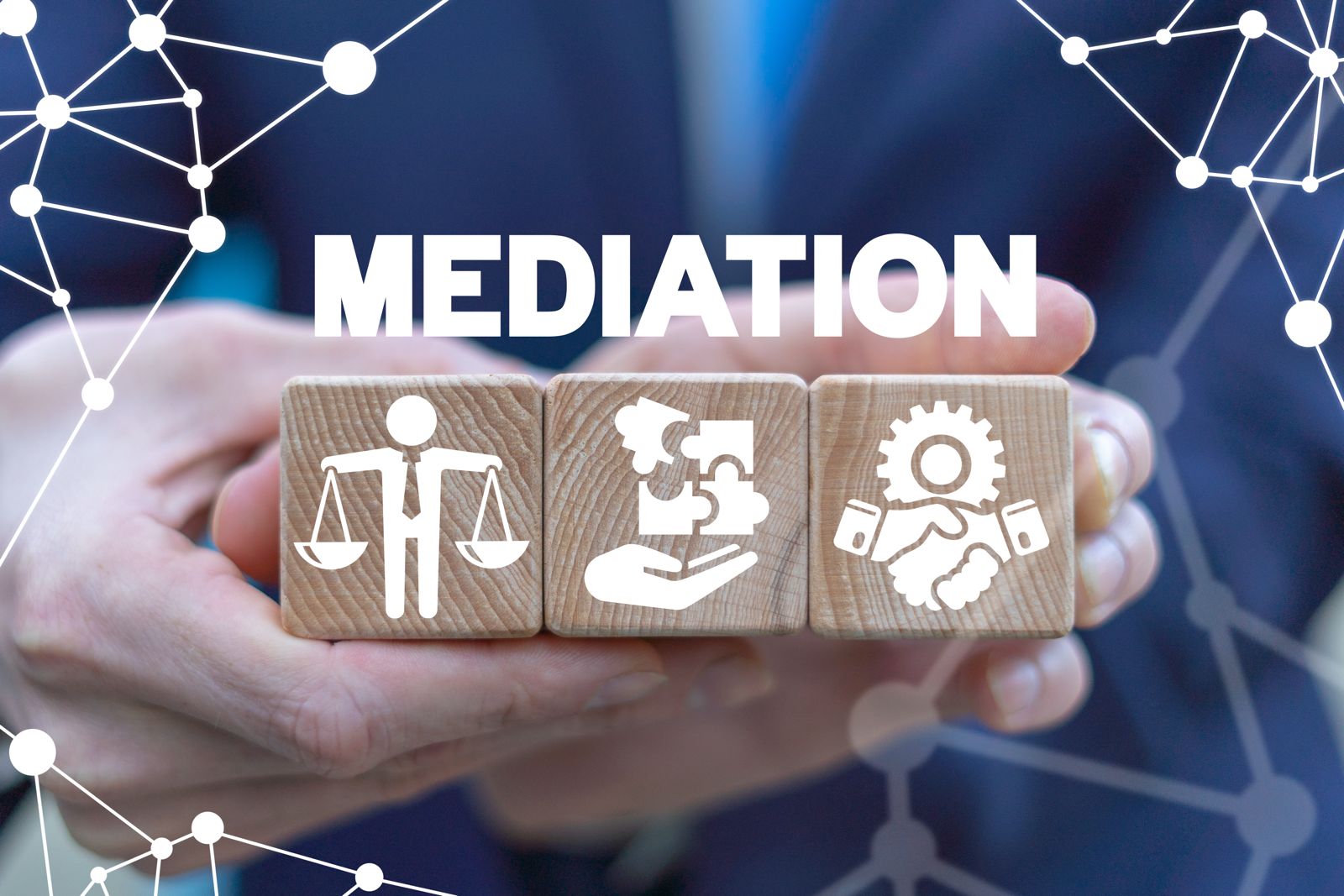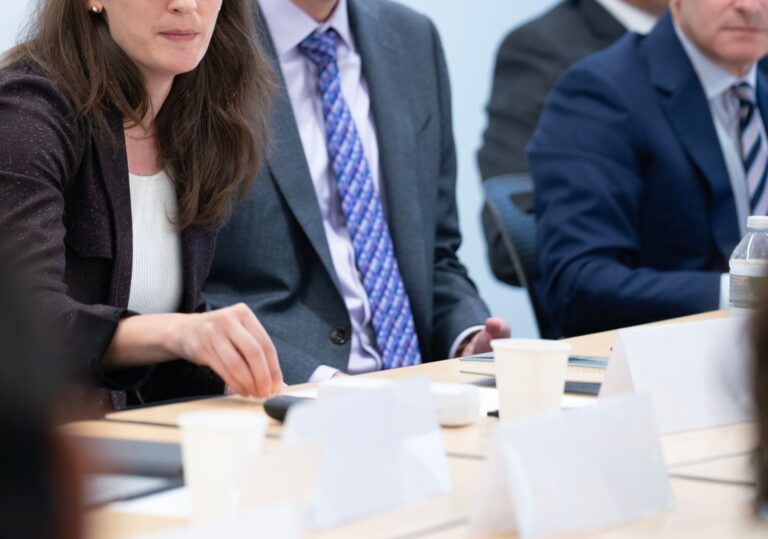info@rubertpartners.com |
+971 4 238 0965 |
API World Tower - Ground Floor, Dubai
Creek Tower Office 10B Deira, Dubai
Introduction to How to Start a Mediation in UAE
This publication addresses the practical aspects of how to start a mediation in Dubai and the UAE, even when you have no direct contact with the other party.
When a disagreement arises — whether between business partners, spouses, employers and employees, or landlords and tenants — mediation can be an effective and dignified way to find resolution. But how exactly does one begin the mediation process in Dubai or elsewhere in the UAE?
Many parties are unsure where to start: Do they need to agree in writing? Must a lawyer initiate it? What role do ADR (Alternative Dispute Resolution) institutions play? This guide explains the steps to start mediation, including how to proceed when direct contact with the other party is not possible, and what to expect in terms of process and costs.
1. Step One: Agreement to Mediate
The first step in any mediation is agreement — both parties must be willing to mediate. Mediation is voluntary, unless a contract specifically requires it. In such cases, what is required is to attempt mediation in good faith, not to agree on any particular outcome.
You can start mediation in two ways:
- By direct agreement: The parties mutually decide to mediate and jointly select a mediator or mediation centre.
- Through legal representatives: Often, one party’s lawyer contacts the other side to propose mediation before filing a claim or during ongoing proceedings.
In either scenario, a Mediation Agreement is usually signed. This document defines the scope of the dispute, confidentiality terms, appointment of the mediator, language, and cost-sharing arrangements.
2. What If You Don’t Have Direct Contact with the Other Party?
In many situations, communication between the parties has broken down — for example, following contract termination, partnership disputes, or family separation. In such cases, mediation can still be initiated by approaching a recognised ADR institution directly.
How It Works
You (or your lawyer) submit a Request for Mediation to the chosen institution, such as the Dubai International Arbitration Centre (DIAC), the DIFC Courts, or the ADGM Arbitration Centre.
- The request includes basic details of the dispute, identification of the other party, and confirmation of willingness to mediate.
- A registration fee is paid to initiate the process (for example, DIAC charges USD 2,000; DIFC mediation fees are typically inclusive).
The institution formally contacts the other party by email and/or courier, inviting them to participate in mediation.
If the other party accepts, the institution assists with:
- Appointment of a mediator (or confirmation of a jointly selected mediator),
- Setting administrative fees and timelines,
- Coordinating the first mediation session.
If the other party declines or does not respond, the mediation does not proceed. However, the attempt may later be viewed by a court or tribunal as evidence of good faith.
Why This Approach Helps
- It avoids the discomfort or impracticality of contacting the other side directly.
- It demonstrates good faith and professionalism, particularly in commercial or employment disputes.
- A neutral institutional invitation often increases participation by framing mediation as a formal but non-adversarial option.
3. Step Two: Choosing a Mediator or Institution
In the UAE, mediation may be conducted privately or through an ADR institution.
Private Mediation
Parties may appoint a mediator directly, for example through Rubert & Partners, where mediators are legally qualified and experienced in both commercial and family matters. Private mediation offers flexibility regarding timing, language, and confidentiality.
Institutional Mediation
Several UAE institutions administer mediation under established procedural rules:
- Dubai International Arbitration Centre (DIAC) – mediation under DIAC Mediation Rules.
- DIFC Courts – court-connected and non-court-connected mediation.
- Abu Dhabi Global Market (ADGM) – court-annexed mediation services.
- Dubai Family Court / Family Guidance Section – mandatory pre-litigation conciliation for family matters (not full mediation sessions in the institutional sense).
These institutions maintain panels of qualified mediators and provide predictable procedures, fee structures, and enforceability mechanisms.
4. Step Three: Preparing for the Mediation
Once a mediator is appointed, the parties (and their lawyers, if involved) submit a brief case summary and relevant documents. The mediator may hold a preliminary call or meeting to explain the process and confirm scheduling.
Mediation may be conducted in person or online and typically lasts one full day or several shorter sessions.
Each party should attend with:
- A clear understanding of the issues and desired outcomes,
- Supporting documents and factual background,
- Authority to negotiate and settle, particularly in corporate disputes.
5. Costs of Mediation in the UAE
Mediation is generally more cost-effective than arbitration or litigation.
Private Mediation Fees
- Typically range from USD 3,000 to USD 20,000, depending on complexity and duration.
- Costs are usually shared equally between the parties.
- Legal fees, where applicable, are charged separately.
Institutional Mediation Fees
- ADR centres such as DIAC or DIFC apply fixed registration and administrative fees.
- Family conciliation through the Dubai Family Court or Family Guidance Section is often free or included within standard court filing costs.
6. The Role of Lawyers in Mediation
Lawyers play a supportive and facilitative role in mediation. They assist by:
- Assessing whether mediation is appropriate,
- Drafting or reviewing the Mediation Agreement,
- Preparing legal and factual summaries,
- Ensuring any settlement reached is clear, fair, and enforceable.
Their involvement often enhances structure and confidence while keeping negotiations solution-focused.
7. After the Mediation: Settlement and Enforceability
If an agreement is reached, it is recorded in a Settlement Agreement signed by both parties. Depending on the circumstances, it may be:
- Enforced contractually, or
- Ratified as a consent order or award through DIFC or ADGM Courts, giving it full legal effect.
If no settlement is reached, the mediation simply concludes. Nonetheless, mediation often narrows issues, improves communication, and facilitates subsequent negotiation, litigation, or arbitration. Information exchanged during mediation remains confidential and inadmissible in court or arbitral proceedings.
Conclusion on How to Start a Mediation in the UAE
Starting a mediation in the UAE is a structured and accessible process — even where communication between parties has broken down. Whether initiated privately or through an ADR institution, mediation provides a confidential, efficient, and cost-effective path to dispute resolution while preserving relationships.
At Rubert & Partners, our mediators guide clients from the initial request through to final agreement, ensuring professionalism, transparency, and constructive outcomes.
We hope this guide assists you in understanding how to start a mediation in Dubai and the UAE. For tailored advice on your specific situation, our team remains available.
For further practical content in English, explore our Publications and the Videos by our Partner, Maria Rubert.
Disclaimer: This content is provided for general information only and does not constitute legal advice. Professional advice should be sought for specific matters.





